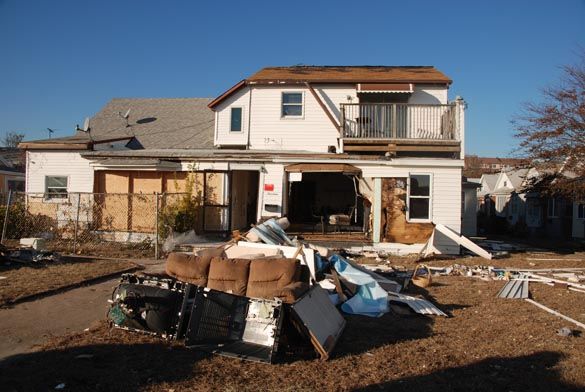Council Mulls 10 Storm Preparedness Bills After Sandy

Ten bills will be introduced in the New York City Council this month addressing storm preparedness in response to concerns about the city’s handling of Superstorm Sandy.
The bills are largely designed to improve response for vulnerable New Yorkers whose needs, proponents say, were poorly addressed in the wake of Superstorm Sandy. Other bills target improvements to the city’s transportation infrastructure when the subway lines are knocked out by natural forces.
The bills are being pushed by Council Speaker Christine Quinn, a mayoral hopeful who largely controls the legislative body’s agenda.
The Wall Street Journal reports:
Under draft legislation, the council would create a task force to make sure every vulnerable or homebound New Yorker is personally visited after a storm. Ms. Quinn and members of council also said they believed the city should keep a database of such New Yorkers, a move the city has opposed on grounds of privacy and because officials have expressed concern about keeping such a list up-to-date.
Ms. Quinn said the city should develop a plan to track the location and medical needs of all individuals taken to special needs shelters. Gov. Andrew Cuomo also announced this week the state had a tracking system in place for the 2013 hurricane season—called NYS e-FINDS.
Additionally, Ms. Quinn also wants a plan to detail roles of the public, private and nonprofit sectors engaged in the distribution of food and water. She has said the distribution was uncoordinated after Sandy—which struck the region on Oct. 29— leaving some shelters without food for residents who had physical or mental disabilities.
The legislation supported by Ms. Quinn also would address the city’s transportation system. The city would be forced to install backup power for streetlights and traffic signals, expand its bus and ferry services using either public or private entities and allow livery drivers to accept passengers who hail them from the street. Her plans would also include the option of closing some streets to all vehicles other than buses or emergency crews.
She added the city should write a fuel-management plan that would guarantee first responders priority for available gas.
The proposals are currently unfunded, and the price tag is unknown, the paper notes.




